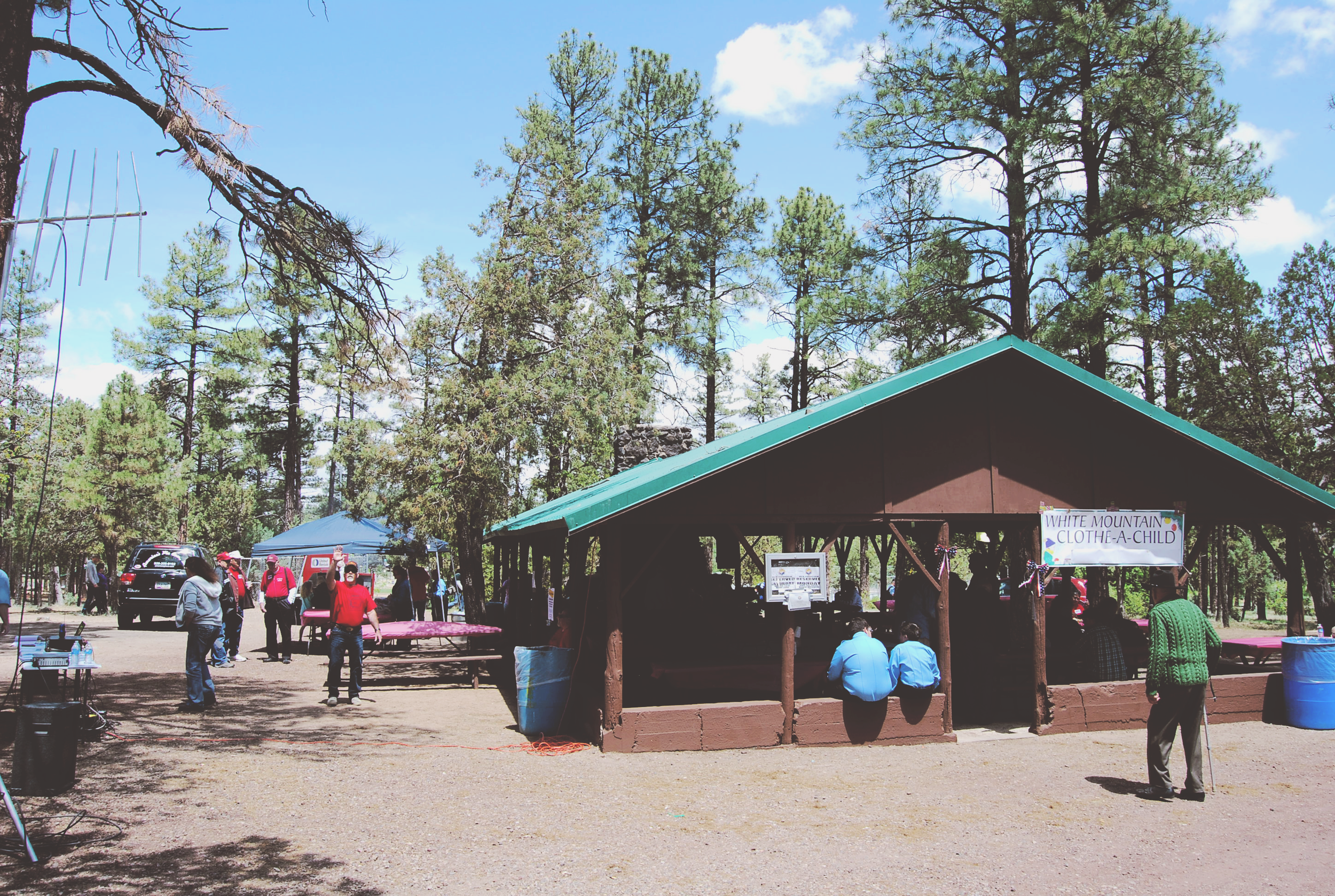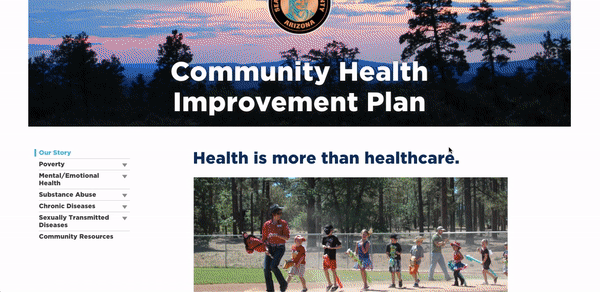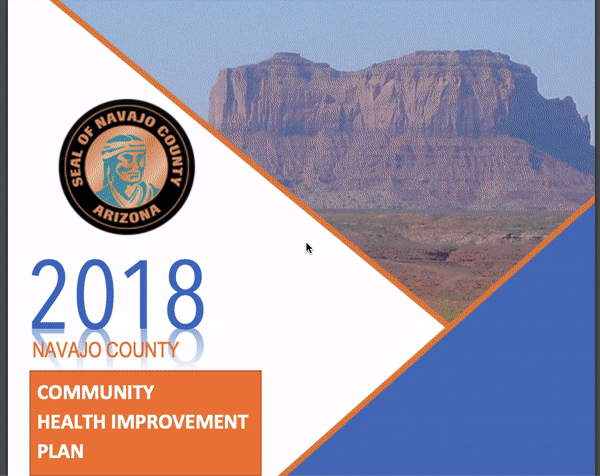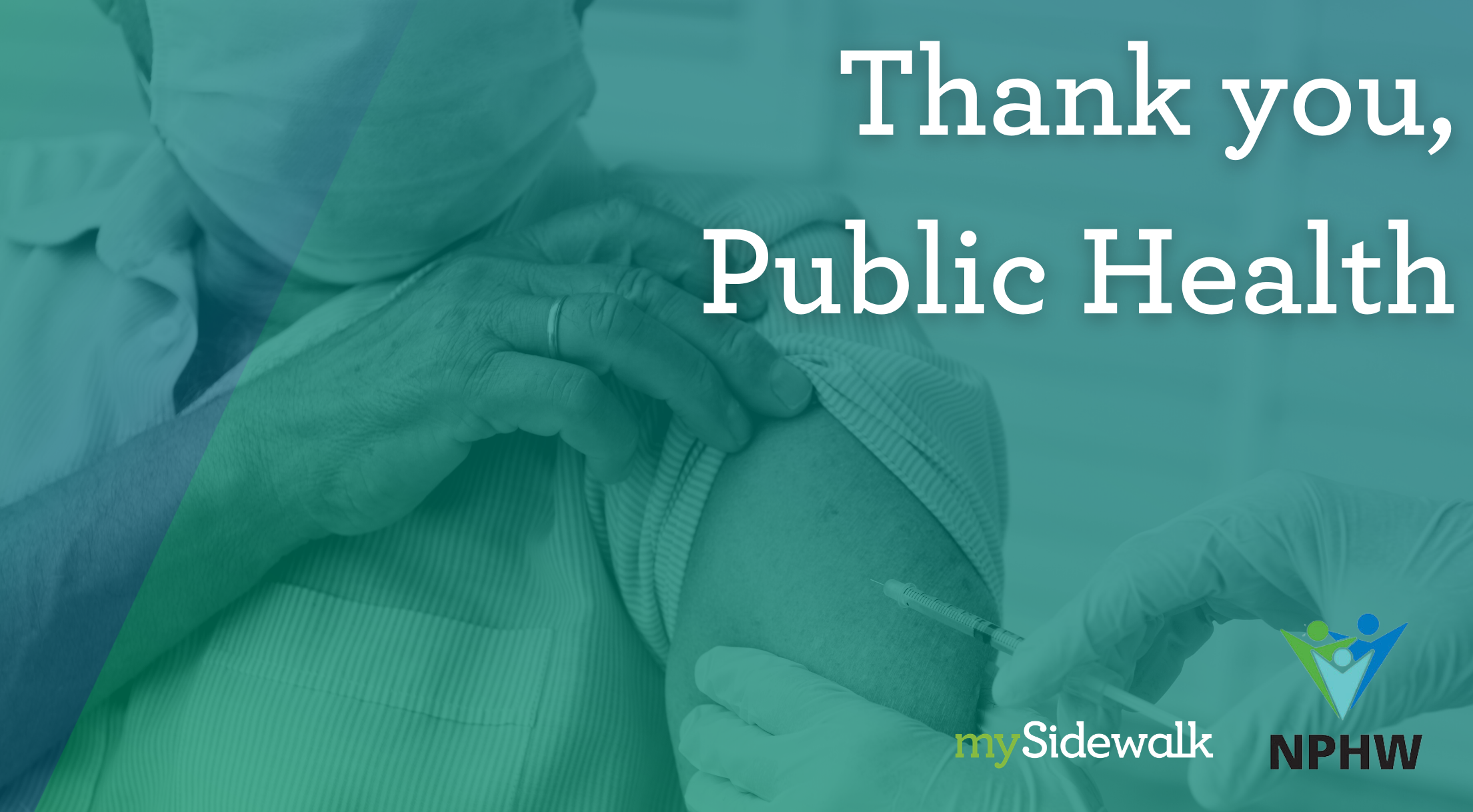A Prescription for Healing: The Navajo County CHIP Story
Everyone Deserves to Be Healthy
Navajo County is located in the northern part of Arizona. A primarily rural county that’s larger than the state of Maryland, it is home to parts of the Hopi Indian reservation, the Navajo Nation, and Fort Apache Indian Reservation.
In addition to tribal communities, the County has a large Mormon and Catholic population. Divergent cultural norms, social taboos, and historical injustices pose a challenge to health and human services leaders.

We partnered with the County’s Public Health Department, specifically Director Jeff Lee and Epidemiologist Edwin Rodriguez. The Department applies scientific and technical knowledge to prevent disease and promote health.
Their mission is to promote and protect public health through education, prevention and partnerships. One of the cornerstones of this mission is the Navajo County Community Health Improvement Plan (CHIP).
They had 4 main goals for their CHIP
-
Connect community leaders and the public with insight into how the CHIP affects the community.
-
Present the data in a way that is unifying and sensitive to both the tribal communities as well as the diverse religion and cultural subpopulations; they wanted to dispel stereotypes and unify their community around common goals and issues.
-
Engage the community about sensitive topics and debunk the stigmas around them.
-
Increase awareness of the public health infrastructure in the county; what are the roles and services that are available to members of the county.
Jeff and his team faced several obstacles in advance of rolling out their new CHIP. Like many County departments, resources at the Health Department are stretched thin. Arizona ranks near the bottom in per-capita Public Health spending. Additionally, the County had historically focused on health data at the county level, not the more detailed, granular level. Lastly — and probably most challenging — they would need to find a way to embrace their diversity and share sensitive feedback across their audiences.
Navajo County needed to do something different than the norm. Showing health inequities between the reservation and the non-reservation land might only perpetuate the “us vs. them” dynamic. Working alongside the data storytellers of mySidewalk, the County chose to elevate the idea that when our communities are segregated and unequal, we are all worse off.
By comparing census tracts to the US average, instead of pitting them against each other, they created a more powerful and inclusive story of need. Using data visualization to level that playing field would be key to implementation and success. Residents can now see the concerns became ‘ours’ and not just ‘theirs’ — which means the outcomes and improvements are also shared.
In addition to data visualization, the Navajo team needed a unifying story. Top of mind for County leaders was the difficulty they had engaging the community about sensitive topics that are considered culturally taboo to discuss and off limits for government involvement.
Any discussion around Sexually Transmitted Diseases or alcoholism was seen as promoting ‘deviant’ or illicit practices and caused friction between the government, the schools, and the varying religious and cultural communities. They needed education and resources on these issues, but lacked a unifying way to go about it. This inaction, and lack of data dissemination, education, and policy influence, put the health of their community at continued risk.
During initial conversations with mySidewalk, Jeff and Edwin vocalized their concern that while unity is a goal, achieving it seemed unattainable. Coming to a consensus in the community on even one item proved challenging. Finding the great unifier was turning into a roadblock.
Our Customer Development Manager, Kaitlyn Service, and our Data Storyteller, Nicolette Wallis, listened to their concerns and fears and through the conflict realized that while each fraction was bringing to the table their own views and cultural mindsets, one consistent message was resonating: Everybody deserves to be healthy. Regardless of zip code, cultural connectivity, or religion, this was a truism. And it became our north star for their dashboard development.


Navajo County Community Health Improvement Plan: After and Before
Suddenly it wasn’t about data divisiveness. It was about data healing.
Navajo County Public Health now had a way to tell the story of their community that showed the shared challenges and expressed a common goal: everybody deserves to be healthy. In addition to a semi-serious job offer to our own Nicolette, Jeff and Edwin reflected on what the Dashboard can provide their community, the groundwork it lays for open dialogue across cultures and communities. “This gives me hope that we can actually start talking about these issues in our community,” Edwin said.
Better still, their team turned their empowerment in to action. Using the storytelling approach Nicolette modeled for them as their guide, they opted to write the STD page themselves. Knowing this was not only the most sensitive topic, but also one of the most important, Jeff and Edwin felt that there was real power in having that story be told by the Department directly.
They next-leveled that idea, by establishing a cross-cultural STD Taskforce and bringing in community youth for a “Youth Health” page to educate, reduce shame and stigma, and bring public health down to a relatable level.
The county team created the STD resource guide that had seemed too divisive to tackle only a month earlier — and they did so openly and with input from their diverse community.
Navajo County will continue to face public health challenges and will continue to have to iterate how they address those concerns. But, with a data driven, beautifully designed, fully accessible dashboard, the transparency they’ve provided to their residents sets the table for frank, inclusive conversations that focus on how their common health can be a unifier, not a divider.
Share this
You May Also Like
These Related Stories

Brighter Days Ahead: Celebrating Public Health

How to Leverage Community Data for COVID-19 Response


No Comments Yet
Let us know what you think